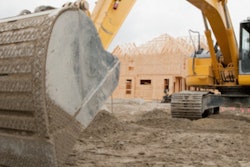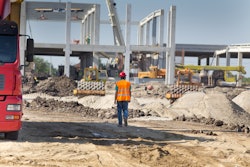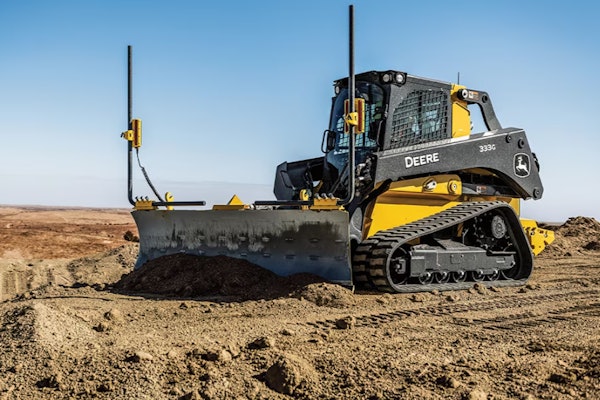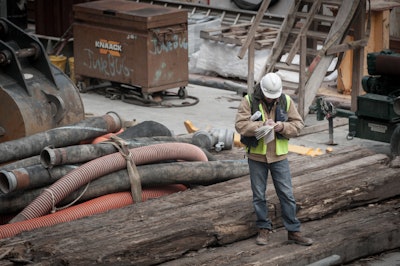 Credit: Robert Sarnowski / Shutterstock.com
Credit: Robert Sarnowski / Shutterstock.comLocation, location, location.
It’s much more than a real estate mantra these days; it determines how much of an impact the coronavirus is having on a contractor’s business.
From being completely shut down due to state or local governmental edict, to having projects sped up because stay-at-home orders have reduced the impact of people and traffic, contractor experiences during the pandemic run the spectrum.
Wherever they are located, however, all are dealing with completely different expectations than they had on January 1st.
Delays, delays
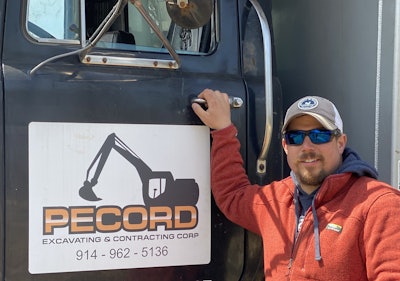 Cordone
CordonePecord Excavating and Contracting, a small earthmoving and sitework company in Yorktown Heights, New York, about 40 miles due north of Manhattan, has three projects that have been put on hold, worth approximately $3.5 million.
“That’s huge for us,” says CEO Richard Cordone. In normal times the company has about three to six months of work ahead of it. Today, it’s less than three weeks.
“We had a couple of million dollars’ worth of work that we were planning on starting in late March, early April, and it’s been set back, so we’ve got a hole we’re trying to fill,” says Brad Phillips, president of Phillips Companies in Beavercreek, Ohio.
 Phillips
PhillipsPhillips was heading into spring about to start a mall redevelopment project that included a new hotel. Phillips was hired to do site work and utility relocation, but the owner pushed back the project six months. The same thing happened on a large subdivision project Phillips was planning to start in April for a homebuilder. “They’re not selling the houses,” he says.
The good news is the projects were not canceled.
“I’ve just been telling everybody that our fiscal year ends in September, so basically from April 1 to September 30th, that’s our half a year,” he says, “and it’s going to take us till the end of December to get that half year’s worth of work done.”
Post ConExpo
 Stephenson
StephensonAll was fine when Clint Stephenson, president of CLS Excavation, went to Las Vegas in mid-March to attend ConExpo and be honored as an Equipment World Contractor of the Year finalist.
“When we were in Las Vegas I received a call from a client [to say] that there may be some interruption in some of their workload that they had for us,” Stephenson recalls. “But he kind of assured me that they didn’t think that would happen.
“We had one job going on with them and we were just getting started, and [the owner] just stopped it midstream.”
Since then two more of the Liberty Hill, Texas, contractor’s jobs have been halted, and the company is currently not working on a single project. “My yard looks like an auction site right now,” Stephenson jokes.
“Bidding frenzy”
For Jack Bailey, Sr., president of JBR Incorporated in Fredericksburg, Virginia, the market is quite different.
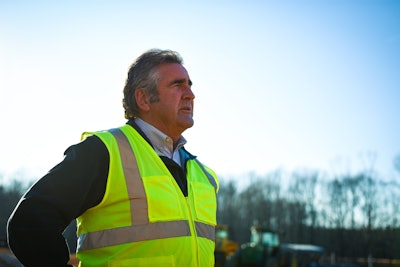 Bailey
Bailey“I’ve never seen such a bidding frenzy,” Bailey says. The $16 million site development contractor typically delivers 200 to 300 lots per year to housing developers. “We had one 10-day stretch where we bid $32 million worth of jobs,” he says.
“When things started to hit, the first thing I did was to pick up the phone and ask our owners where we stood,” Bailey says. “They told me everything was fully funded. Around here, people are still buying houses.”
This is particularly true of lower-priced housing developments in the areas around the District of Columbia, because governmental demand is not going away. “There is such a pent-up demand here for housing,” Bailey says. “People around here still have money.”
For now, business is still good, says Andrew Cook, a senior project manager with Ruby-Collins in Atlanta, Georgia, a company with 112 employees that builds municipal water and wastewater treatment plants and underground utilities across four states in the Southeast.
“None of the company’s jobs has been canceled,” says Cook. “And we just picked an additional $1.2 million job in the past 10 days.”
But while cash flow is good, bid lettings and pre-bid meetings have dried up.
“There were some big projects that we were tracking that were supposed to advertise, but they did not because a lot of the water utilities have closed their offices,” Cook says. “We’re hoping they just postponed, and once everything opens back up, they will still be on track.”
Uneven internal impact
The unevenness of the virus impact is being felt internally at David A. Nice Builders, headquartered in Williamsburg, Virginia, which has four divisions: civil, commercial, retail and millwork. Total company revenues have dropped by more than 50 percent, led by the retail division, says Brandon Nice, vice president of construction operations.
 Nice
NiceCivil construction and millwork divisions have mostly held their own, while the commercial construction remains a mixed bag, Nice says. “Civil is still booming pretty hard and we’re bidding quite a bit,” he says. “Our millwork division, which supports the retail and commercial operations, has been able to keep moving and has actually grown.”
With about 140 employees and operations in all 50 states, the company’s footprint is large and some suspension of work is inevitable. “My retail division had several jobs ongoing in California, New York and Florida, and those have been stopped or suspended until further notice, if not longer,” says Nice. “I’ve had several projects here locally on the commercial side get pushed back or stopped because of funding concerns.”
The civil division lost some opportunities because of delayed bids, Nice says. Nothing’s been canceled, but a lot of the projects are postponed or delayed, mostly because of government shutdowns and inspectors not being able to get out from under the quarantines. The company also has ongoing relations with Sea World, Busch Gardens and Williamsburg. Reliant on tourist dollars, these organizations have furloughed almost all of their staff.
Still essential
Contractors who are still allowed to work know they are fortunate.
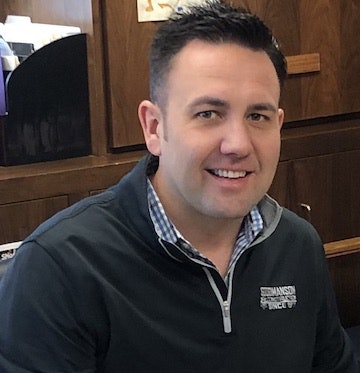 Goodmanson
Goodmanson“We were a little nervous there a few weeks ago when they were talking about really shutting the economy down and potentially not including construction as one of the essential business functions,” recalls Rick Goodmanson, CEO of Goodmanson Construction in Roseville, Minnesota.
The company had a lot of open projects, and the owners were getting nervous as well, wondering if work could proceed. Those fears were alleviated after the governor and federal guidelines included construction as an essential function.
“That at least kept all of the things going that we were already working on,” Goodmanson says.
Construction deemed an essential function has also kept Lippis Excavating in Canon City, Colorado, busy. The company has longstanding utilities work at the Pueblo Chemical Depot, where employees have been sent home to work remotely.
“So we’re out here by ourselves; we don’t see anybody. You can’t get contaminated,” says company owner Ray Lippis. “This job is a godsend right now.”
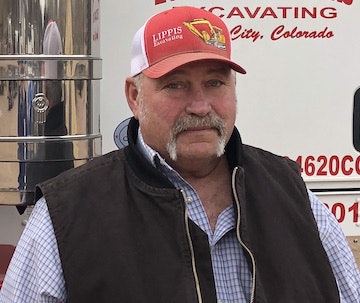 Lippis
LippisResidential work has also been brisk. “We pushed out seven houses in the last few weeks,” he says. “So everything for us at this point is great.”
Pete Sullivan, owner of P.B. Sullivan Construction, also reports work has continued for his general contracting business on Maui, Hawaii.
“The jobs that we already had happening are continuing,” he says. “We’re staying busy.”
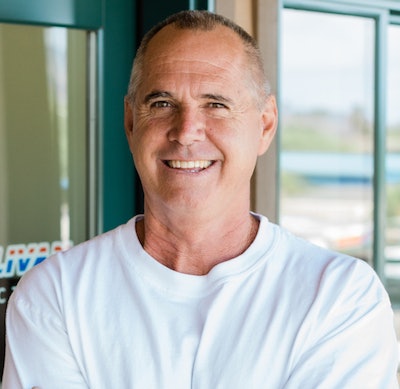 Sullivan
SullivanThat includes a $9 million affordable-housing apartment project and a $4 million condominium job. The company has also been able to ramp up a project at a beach hotel, as all the resorts are closed due to the pandemic. Typically, the company has to schedule its work to avoid guests. “There are no visitors that we have to deal with,” Sullivan says, “and so it’s really helped us in a big way.”
At the same time, he’s concerned about the devastation the pandemic is unleashing on Maui’s tourist-based economy.
“I feel like I’m living in a bubble personally,” he says, “because I get to go in the ocean and I get to go to work every day. There are so many people here on the island that are tied to the tourist industry that can’t work.”
A coming gap?
“We think that once this thing subsides here – and no one knows when that is going to be – we think that there’s such a pent-up demand here that certain segments of this economy are going to explode,” says Bailey, who runs JBR with son Jack Bailey Jr.
“But the engineers have stopped right now, which will create a gap four to five months down the road,” Bailey adds. “Engineers are very nervous right now because there’s no funding for any new deals. They’re all focused on existing plans and trying to get them through, which has become a real logjam. It’s taken the slow process of plan approval and permitting and put the brakes on it.”
Bailey’s concerns about a project-level dip later this year are echoed by others.
 Copeland
Copeland“What I am worried about is six months from now,” says Andrew Copeland, head of Copeland Technical Solutions in Charlotte, North Carolina. There are a lot of jobs under contract that should be coming up now, but permits are really hard to get, he says.
“I think the money will get held up because of the uncertainty,” Copeland continues. “Anybody who is in a position where they can stop probably will. In the short term the backlog is already out there; the financing is in place, and the work has already started. Those jobs I don’t expect to stop. The next phase, jobs that are six to eight months down the road, are in the design phase right now. On those I’m expecting a gap.”
“We’re hearing from our Associated Builders and Contractors chapter that there are 30 to 40 percent fewer projects out there, because people are not putting their projects out for bid,” says Melissa Lester, who runs Lester Contracting in Port Lavaca, Texas, with her husband, Ken. “That’s affecting us. We’re not bidding. We’re not getting jobs. So yeah, it’s the coronavirus affecting our backlog because there are not as many projects out there as there should be.”
Lippis adds: “I would say come wintertime, November, it’s going to be really ugly for a lot of people, I’m afraid. And we’re not spending any money where we don’t need to spend. We’re being very careful.”
Despite his current situation, Stephenson is optimistic about work returning. Though his jobs to this point have been all private, he plans to make changes to be ready to perform work for both the state of Texas and the federal government.
“The first thing is the local governments are going to have to start issuing new permits…and then hopefully the banks honor their commitments to those projects that they’ve already made,” he says. “We’re in an uber-hot market here and so even when [things are] bad, it’s still good [here].”
“None of that is changing, and with people being locked up at home, I think a lot of them will realize or think now, ‘Well, maybe my house is too small,'” Stephenson continues. “So, homebuilders are telling me they expect larger home sales to start going up now. … So I’ve got to believe it’s going to take off again, and there seems to be a lot [of work] pent up here.”
“I’m concerned, but I’m not scared,” Phillips says. “I’ve got to admit, I was scared in ’09 and ’10. That was scary because, where was the money going to come from? Nothing was happening. So right now, it’s just going to be a slowdown.”
“I’ve been through a couple of these, and we’ll make it,” Lippis says. “We don’t we don’t have a choice.”
Tom Jackson, Don McLoud and Wayne Grayson contributed to this report.





